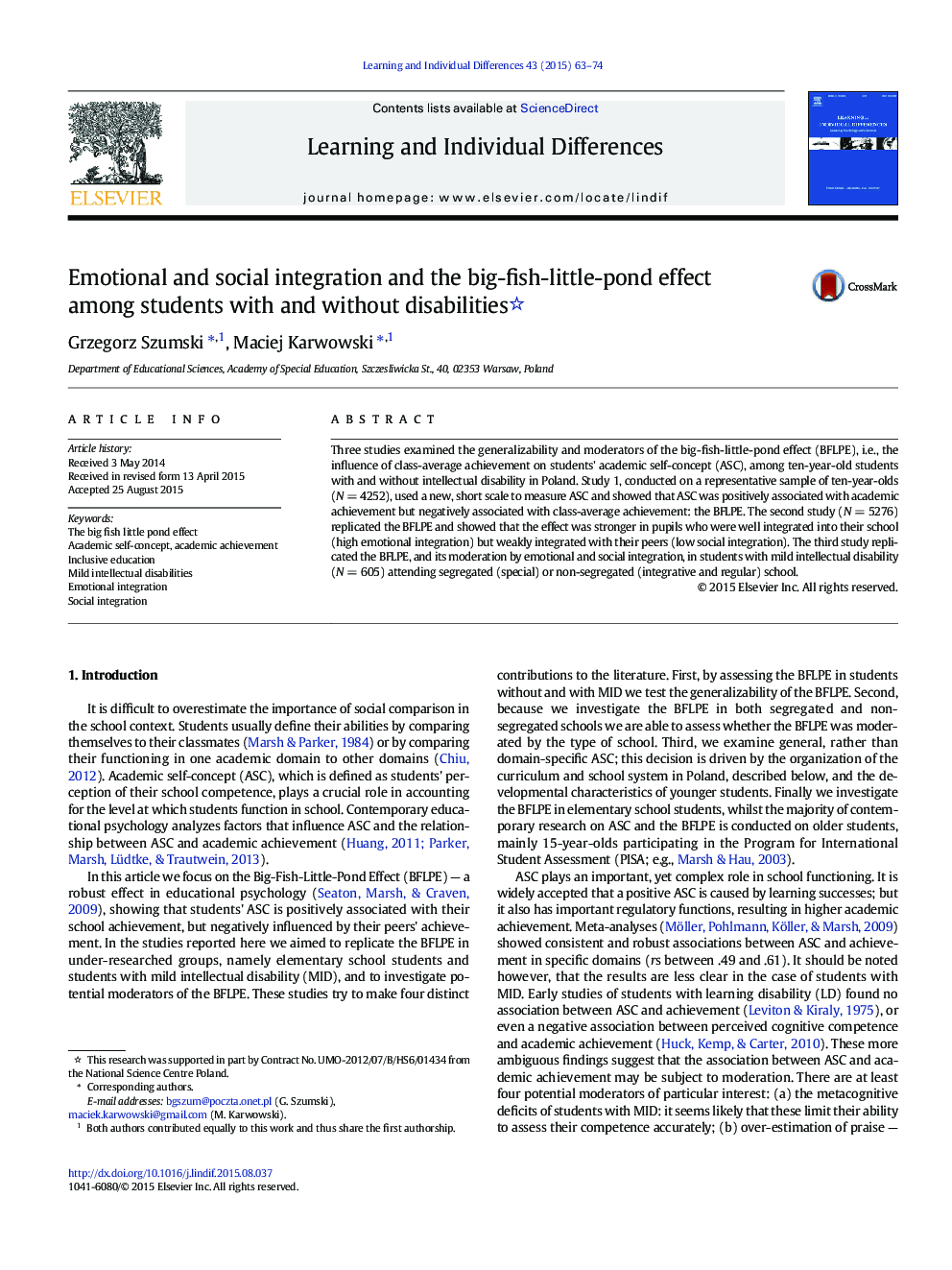| Article ID | Journal | Published Year | Pages | File Type |
|---|---|---|---|---|
| 364651 | Learning and Individual Differences | 2015 | 12 Pages |
•Three studies replicate BFLPE among able students and students with mild intellectual disability.•Integration with school and peers moderates the BFLPE.•The negative association between academic self-concept and school achievement was observed among students with disability.
Three studies examined the generalizability and moderators of the big-fish-little-pond effect (BFLPE), i.e., the influence of class-average achievement on students' academic self-concept (ASC), among ten-year-old students with and without intellectual disability in Poland. Study 1, conducted on a representative sample of ten-year-olds (N = 4252), used a new, short scale to measure ASC and showed that ASC was positively associated with academic achievement but negatively associated with class-average achievement: the BFLPE. The second study (N = 5276) replicated the BFLPE and showed that the effect was stronger in pupils who were well integrated into their school (high emotional integration) but weakly integrated with their peers (low social integration). The third study replicated the BFLPE, and its moderation by emotional and social integration, in students with mild intellectual disability (N = 605) attending segregated (special) or non-segregated (integrative and regular) school.
